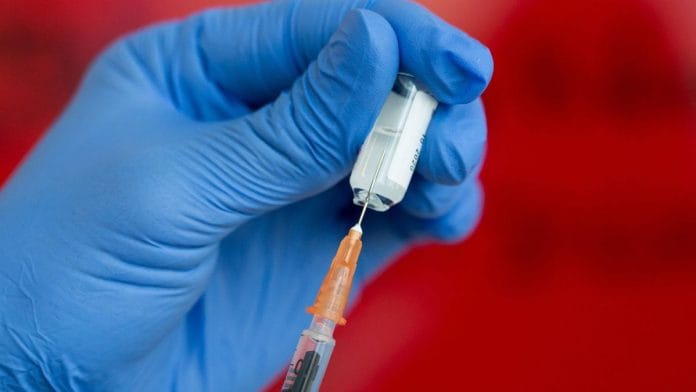New Delhi: At a time when India’s pace of Covid-19 vaccination is being repeatedly criticised, supplies remain a major concern and chatter about a possible necessity of a booster shot is growing, the Indian Institute of Science (IISc) says it may soon have a booster shot that any vaccinated person could be eligible for.
One of the country’s premier scientific research institutes, the IISc in Bengaluru has been working on a Covid-19 vaccine candidate for some time now and its developers are hoping that the protein subunit vaccine could emerge as a vaccine agnostic booster shot. This means that no matter what the vaccination history of a person, the shot can be administered as a booster dose.
The vaccine cleared animal trials and has gone into manufacturing, in preparation for the phase 1 trials that could start by the beginning of 2022.
“We are developing it as a two-dose vaccine but by the time it is rolled out, people will obviously have a reasonable amount of background immunity. So even one shot might give a significant boost to the immune response,” said Dr Gautham Nadig, executive director of Mynvax, a start-up under the SID-IISc incubator that was co-founded with Dr Raghavan Varadarajan in whose laboratory the vaccine was designed. Dr Varadarajan is part of IISc’s faculty and the Molecular Biophysics Unit at the institute, with an expertise in protein folding and dynamics.
“It has the potential to work as a booster shot irrespective of the character of the vaccines administered earlier … it is also very easy to update in case of emergence of newer variants, maybe even within a few months. We have also tested sera from immunised mice and found that neutralisation titers for the emerging alpha, beta, delta, etc., variants are quite substantial,” Dr Nadig added. Neutralisation titers are an estimate of the neutralising antibodies that a vaccine generates.
The vaccine comprises about 200 amino acids (the building blocks of proteins) of the receptor binding domain (RBD) of the SARS-CoV-2 virus and has already been tested in mice, hamsters etc.
What really makes the proposition exciting, though, is the fact that the vaccine is heat stable. This means it nullifies the cold chain requirement, a factor that has so far limited India from adding several other vaccines to the national Covid-19 immunisation programme.
“In an improved form of the antigen, the RBD has been engineered to make it more stable and immunogenic [causing a stronger immune response]. It can be made into a powder and we have tested this form by heating the antigen upto 100 degrees Celsius and found that it still retains its activity. In fact, it is stable at 37 degree Celsius for over a few weeks. So, it will not require a cold chain at all,” Dr Nadig explained.
Mynvax was set up in 2017-18 to facilitate the work Dr Varadarajan’s laboratory was then doing on the influenza vaccine. When the pandemic started, the focus shifted to the development of a Covid-19 vaccine.
Also read: Too early to tell if Covid booster shot is required, WHO’s chief scientist Swaminathan says
Expecting a grant from DBT
Mynvax is now in talks with a manufacturer for the production of the vaccine and the phase 1 trials. Dr Nadig hopes trials will start in six to seven months. The company has sought financial support to the tune of Rs 30 crore from the Department of Biotechnology (DBT), under the science ministry. Of this amount, Rs 15 crore will go towards the safety and toxicity studies and another Rs 15 crore towards clinical trials.
The company has been nudged by the government to speed up the process of a formal tie-up with the manufacturer. Sources in the DBT told ThePrint that a positive decision on the financial support application could come soon.
About the vaccine, the IISc website says: “With critical, catalytic funding and support from the Bill and Melinda Gates Foundation, a number of spike protein derivatives have been designed and characterized at IISc. These are being tested in animal models through the IISc incubated start-up, Mynvax. The design which shows the best results in animals will be advanced to development of production technology, safety and toxicity testing, followed by GMP manufacturing for use in Phase-1 clinical trials. We estimate that at least 100 million doses will be required to meet India’s requirement if the SARS-CoV-2 infection persists for the medium to long-term.”
(Edited by Manasa Mohan)
Also read: IISc Bangalore’s entry in QS World Rankings isn’t a surprise. It was just a matter of time






